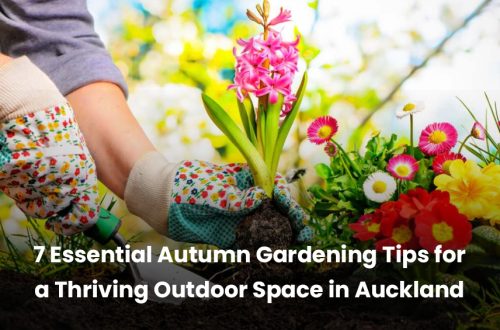Understanding Perth’s Unique Climate
Perth‚ Western Australia‚ boasts a Mediterranean climate characterized by hot‚ dry summers and mild‚ wet winters. This presents unique challenges and opportunities for gardeners. Understanding these nuances is crucial for successful gardening. The sandy soil‚ known as Perth sand‚ also requires specific attention. It drains quickly and is low in nutrients. Therefore‚ soil improvement is often the first step.
Soil Preparation: The Foundation of a Thriving Garden
Preparing your soil correctly is paramount. Amending Perth’s sandy soil is essential for water retention and nutrient availability. Consider these steps:
- Adding Organic Matter: Incorporate compost‚ manure‚ or other organic materials to improve soil structure and fertility.
- Using Soil Wetters: These help water penetrate the soil more effectively.
- Mulching: Apply a layer of mulch to retain moisture‚ suppress weeds‚ and regulate soil temperature.
Watering Strategies for Perth Gardens
Water is a precious resource‚ especially during Perth’s hot summers. Efficient watering techniques are vital. Consider these strategies:
- Water deeply and less frequently: This encourages deep root growth‚ making plants more drought-tolerant.
- Water early in the morning: This minimizes water loss through evaporation.
- Use drip irrigation or soaker hoses: These deliver water directly to the roots‚ reducing water waste.
“Remember‚ overwatering can be just as harmful as underwatering. Check the soil moisture before watering to avoid root rot.”
Choosing the Right Plants for Perth
Selecting plants that are well-suited to Perth’s climate is key to a low-maintenance and thriving garden. Native plants are an excellent choice as they are adapted to the local conditions. Some great options include:
- Grevilleas: These attract birds and are drought-tolerant.
- Banksias: Another native option that provides habitat for wildlife.
- Westringias: Hardy shrubs that are easy to grow.
Consider also Mediterranean plants like lavender‚ rosemary‚ and olive trees‚ which thrive in Perth’s climate.
Pest and Disease Management
Keep an eye out for common pests and diseases in your Perth garden. Regular inspection can help you catch problems early. Some common issues include:
- Aphids: These small insects can suck sap from plants.
- Snails and Slugs: They can damage leaves and flowers.
- Powdery Mildew: A fungal disease that affects many plants.
Use organic pest control methods whenever possible. Introduce beneficial insects like ladybugs to control aphids. Use snail bait or traps to manage snails and slugs. Ensure good air circulation to prevent powdery mildew.
FAQ: Gardening Tips Perth WA
What is the best time to plant in Perth?
The best time to plant in Perth is during autumn (March-May) and spring (September-November). The weather is milder during these seasons‚ allowing plants to establish themselves before the extreme heat of summer or the cold of winter.
How often should I fertilize my plants?
Fertilize your plants regularly during the growing season (spring and summer). Use a slow-release fertilizer or liquid fertilizer according to the manufacturer’s instructions. Avoid over-fertilizing‚ as this can damage plants.
What can I do to improve drainage in my garden?
Improve drainage by adding organic matter to the soil‚ creating raised garden beds‚ or installing drainage pipes. Perth’s sandy soil drains quickly‚ but compaction can still be an issue.
Are there any plants I should avoid in Perth?
Avoid plants that are highly water-demanding or susceptible to Perth’s hot‚ dry summers. Invasive species should also be avoided to protect the local ecosystem.
Perth‚ Western Australia‚ boasts a Mediterranean climate characterized by hot‚ dry summers and mild‚ wet winters. This presents unique challenges and opportunities for gardeners. Understanding these nuances is crucial for successful gardening. The sandy soil‚ known as Perth sand‚ also requires specific attention. It drains quickly and is low in nutrients. Therefore‚ soil improvement is often the first step.
Preparing your soil correctly is paramount. Amending Perth’s sandy soil is essential for water retention and nutrient availability. Consider these steps:
- Adding Organic Matter: Incorporate compost‚ manure‚ or other organic materials to improve soil structure and fertility.
- Using Soil Wetters: These help water penetrate the soil more effectively.
- Mulching: Apply a layer of mulch to retain moisture‚ suppress weeds‚ and regulate soil temperature.
Water is a precious resource‚ especially during Perth’s hot summers. Efficient watering techniques are vital. Consider these strategies:
- Water deeply and less frequently: This encourages deep root growth‚ making plants more drought-tolerant.
- Water early in the morning: This minimizes water loss through evaporation;
- Use drip irrigation or soaker hoses: These deliver water directly to the roots‚ reducing water waste.
“Remember‚ overwatering can be just as harmful as underwatering. Check the soil moisture before watering to avoid root rot.”
Selecting plants that are well-suited to Perth’s climate is key to a low-maintenance and thriving garden. Native plants are an excellent choice as they are adapted to the local conditions. Some great options include:
- Grevilleas: These attract birds and are drought-tolerant.
- Banksias: Another native option that provides habitat for wildlife.
- Westringias: Hardy shrubs that are easy to grow.
Consider also Mediterranean plants like lavender‚ rosemary‚ and olive trees‚ which thrive in Perth’s climate.
Keep an eye out for common pests and diseases in your Perth garden. Regular inspection can help you catch problems early. Some common issues include:
- Aphids: These small insects can suck sap from plants.
- Snails and Slugs: They can damage leaves and flowers.
- Powdery Mildew: A fungal disease that affects many plants.
Use organic pest control methods whenever possible. Introduce beneficial insects like ladybugs to control aphids. Use snail bait or traps to manage snails and slugs. Ensure good air circulation to prevent powdery mildew.
The best time to plant in Perth is during autumn (March-May) and spring (September-November). The weather is milder during these seasons‚ allowing plants to establish themselves before the extreme heat of summer or the cold of winter.
Fertilize your plants regularly during the growing season (spring and summer). Use a slow-release fertilizer or liquid fertilizer according to the manufacturer’s instructions. Avoid over-fertilizing‚ as this can damage plants.
Improve drainage by adding organic matter to the soil‚ creating raised garden beds‚ or installing drainage pipes. Perth’s sandy soil drains quickly‚ but compaction can still be an issue.
Avoid plants that are highly water-demanding or susceptible to Perth’s hot‚ dry summers. Invasive species should also be avoided to protect the local ecosystem.
Seasonal Gardening Calendar for Perth
A structured approach to gardening‚ aligned with the seasons‚ will yield optimal results. This calendar provides a general guideline; adjustments may be necessary based on specific microclimates and weather patterns.
Autumn (March ‒ May)
Autumn is an ideal period for planting natives and cool-season vegetables. Soil temperatures are still warm‚ facilitating root establishment before winter. Tasks include:
- Planting seedlings of broccoli‚ cabbage‚ and cauliflower.
- Sowing seeds for spinach‚ lettuce‚ and other leafy greens.
- Dividing perennials and transplanting shrubs.
- Applying a thick layer of mulch to conserve moisture and suppress weeds.
Winter (June ‒ August)
Winter is a period of slower growth‚ requiring minimal intervention. Focus on maintenance and preparation for the upcoming spring. Key activities include:
- Pruning deciduous trees and shrubs.
- Applying dormant oil to fruit trees to control pests.
- Improving soil drainage in preparation for wetter conditions.
- Protecting frost-sensitive plants with covers or by moving them indoors.
Spring (September ─ November)
Spring marks the beginning of the active growing season. Plant summer vegetables and flowering annuals. Tasks include:
- Planting seedlings of tomatoes‚ peppers‚ and eggplants.
- Sowing seeds for beans‚ cucumbers‚ and zucchini.
- Fertilizing plants with a balanced fertilizer.
- Monitoring for pests and diseases and taking appropriate action.
Summer (December ‒ February)
Summer presents the greatest challenges due to high temperatures and water scarcity. Focus on water conservation and protecting plants from the harsh sun. Essential tasks include:
- Watering deeply and regularly‚ preferably in the early morning.
- Providing shade for sensitive plants with shade cloth or by planting them in sheltered locations.
- Mulching heavily to retain moisture and regulate soil temperature.
- Harvesting vegetables and fruits as they ripen.
Sustainable Gardening Practices in Perth
Adopting sustainable gardening practices is crucial for preserving resources and minimizing environmental impact. Consider the following:
- Water Conservation: Implement water-wise gardening techniques‚ such as using drip irrigation‚ collecting rainwater‚ and choosing drought-tolerant plants.
- Composting: Compost kitchen scraps and yard waste to create nutrient-rich soil amendments.
- Organic Pest Control: Utilize natural pest control methods‚ such as introducing beneficial insects and using organic pesticides.
- Reducing Waste: Minimize the use of plastic pots and other disposable gardening supplies.
“Embrace the principles of permaculture to create a self-sustaining and ecologically balanced garden.”
Advanced Gardening Techniques for Perth
For experienced gardeners seeking to enhance their skills‚ consider exploring these advanced techniques:
- Hydroponics: Growing plants without soil‚ using nutrient-rich water solutions.
- Aquaponics: Combining aquaculture (raising fish) with hydroponics to create a symbiotic ecosystem.
- Vertical Gardening: Growing plants on vertical surfaces‚ such as walls or fences‚ to maximize space.
- Grafting: Joining two plants together to combine their desirable traits.



